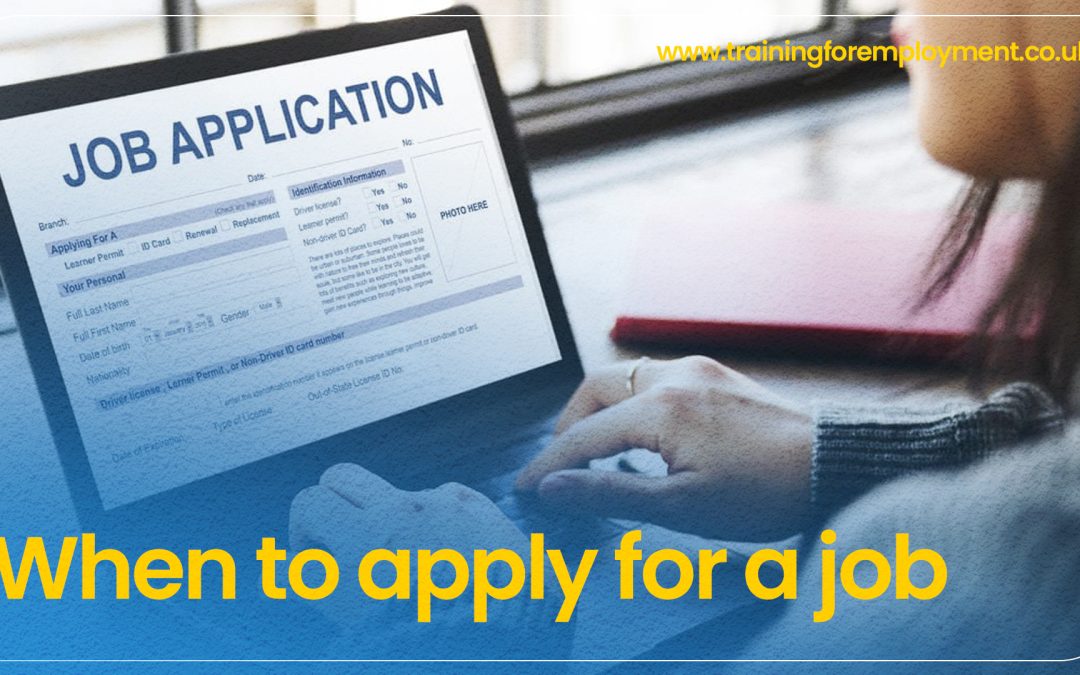There are many hurdles you have to leap over during the course of trying to apply for a job. Some are within your control, such as obtaining the right skills to meet job requirements, applying for a wide range of jobs at the best time to apply for jobs, and mastering your interview technique. Others are completely out of your hands, like waiting for the right job position opening to align with your qualifications, the hiring manager having an ideal candidate in mind that you don’t quite match up with, or even uncontrollable factors like trains being on time!
The key is to harness what control you do have and use it to your advantage. This brings us to today’s blog post, which explores when to apply for a job to maximize your chances. While job application timing may seem like an area that’s always beyond your control, understanding the patterns behind hiring seasons may actually help you apply order to the chaos and approach your job search strategically.
Avoid Summer and Christmas When You Apply for a Job
To put this simply, you need to expend your effort when it makes the most sense to do so. You wouldn’t go for a beach holiday in the UK in the middle of winter, would you? No, so you shouldn’t be bending over backwards sending out CVs and chasing up every job site when companies, in general, won’t be hiring. Or at the very least, when they won’t be hiring quickly.
Senior management will probably be on holiday during the summer, so even if you do get a job opportunity, you’ll likely have to wait for the boss to come back before you can have an interview. Then they can’t hire you until their superior returns two weeks later. But then don’t expected to be given the paperwork because the administrator is in Florida.
Christmas is even worse, as entire firms will be off for extended periods of time. Furthermore, as it is the end of the year, recruiters will be reluctant to hire new people knowing a major holiday is coming up. This isn’t true of every sector (more on that later), but the vast majority of companies will fit into this category. Fortunately, this information does inform our estimate for when best to apply.
Concentrate on the start of the year and Autumn
If Christmas is the end of the year for a business, then mid-January will be the start (once everyone has got back into the swing of things). Companies tend to set out their vision for the coming year, and that usually corresponds with a flurry of firings and hirings. This means the window between January and April is the ideal time to be putting all your effort into your search. April is traditionally seen as the start of the financial year, so it may be the best month of all to go over the top in your search.
September through November is the corresponding period after the summer holidays, when normality sets in, and the push to meet end of year targets begins, so it is also fertile ground. Of course, you should be looking year round anyway, even if it is considered a quiet time, but these two periods are when your are most likely to land a new job. At least, in most cases. . .
Do your research

Another factor to consider is the wave of students who flood the market every August/September after their graduation. If you have a similar degree, you may be crushed beneath the surge, so try and time your search smartly so that it either takes place before or after this stampede.
Whatever job you are applying for, you can use the three tips outlined above. Do your research and figure out if your company has specific busy/quiet times, and if they don’t, stick to the general time frames outlined ahead. Again, you should never stop searching, it just pays to step up, or step down, your search at certain times, so you don’t end up wasting your time. And hopefully, with a little luck, you’ll land your ideal job!

